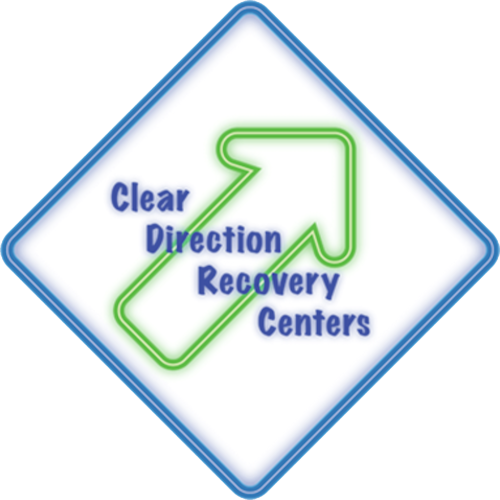Therapy can help you heal, grow, and take back control of your life. At Clear Direction Recovery Centers in New Jersey, we offer both individual and group therapy. We work with you to determine the type of therapy that best suits your individual needs and goals.
How Does Group Therapy Differ from Individual Therapy?
Group therapy versus individual therapy refers to the structure of sessions and the participants involved. Private therapy involves talking one-on-one with a therapist. In group therapy, a therapist meets with several people who are also in addiction treatment programs.
Each option offers unique benefits tailored to your goals and comfort level. Some people value privacy, while others feel supported in group settings.
Here are some key differences:
- Privacy: Individual therapy is private. Group therapy includes sharing with others.
- Support: Group therapy offers peer support. Individual therapy offers personalized, focused care.
- Cost: Group therapy is usually more affordable.
- Pace: Individual therapy is tailored to your pace. Group therapy moves with the group.
- Focus: Individual therapy delves deeply into personal issues and concerns. Group therapy focuses on shared struggles and the development of solutions.
What Is Individual Therapy?
In individual therapy, you meet privately with a trained professional. It provides a safe, one-on-one space where individuals can speak freely without fear of judgment. Sessions typically last 45 to 60 minutes and follow a regular schedule, usually every week.
This type of therapy helps you explore thoughts, feelings, and past or present challenges. It’s commonly used to treat anxiety, depression, trauma, addiction, grief, and major life changes.
Your therapist helps you spot harmful patterns and build healthier ways to cope. You set personal goals, and the process moves at your pace. It’s a focused space for learning, growth, and healing.
What Are Types And Models of Individual Therapy?
Types and Models of Individual Therapy refer to the different therapeutic approaches and techniques used in one-on-one counseling. Here’s a breakdown of the most common ones:
- Focus: Balancing acceptance and change, improving emotional regulation.
- Used For: Borderline personality disorder, self-harm, PTSD, addiction.
- Focus: Balancing acceptance and change, improving emotional regulation.
- Used For: Borderline personality disorder, self-harm, PTSD, addiction.
- Focus: Exploring unconscious processes and past experiences.
- Used For: Long-term emotional issues, relationship problems, trauma.
- Focus: Promoting self-awareness and self-acceptance in a non-judgmental setting.
- Used For: Personal growth, self-esteem, and emotional distress.
- Focus: Reducing distress associated with traumatic memories using bilateral stimulation.
- Used For: PTSD, trauma, anxiety.
- Focus: Building solutions rather than analyzing problems.
- Used For: Goal setting, short-term problem solving.
- Focus: Encouraging mindfulness and commitment to values-based actions.
- Used For: Anxiety, depression, OCD, chronic pain.
- Focus: Improving interpersonal relationships and communication patterns.
- Used For: Depression, grief, life transitions.
- Focus: Connecting physical sensations with emotional experiences.
- Used For: Trauma, stress-related disorders, chronic pain.
- Focus: Reframing life stories to empower the individual.
- Used For: Identity issues, trauma, family conflict.
What Are The Goals Of Individual Therapy?
The goals of individual therapy vary based on the person’s needs, but they generally aim to promote mental, emotional, and behavioral well-being. Here are the most common goals:
- Help clients understand their thoughts, emotions, and behaviors more clearly and effectively.
- Alleviate symptoms of anxiety, depression, grief, trauma, or other mental health conditions.
- Identify and replace distorted or unhelpful thinking with healthier perspectives.
- Equip clients with tools to manage stress, triggers, cravings, or emotional pain.
- Process unresolved emotional wounds and build resilience.
- Improve communication, establish healthy boundaries, and navigate interpersonal challenges.
- Support self-esteem, confidence, and the pursuit of meaningful goals or values.
- Address habits such as substance use, self-harm, or impulsivity and work toward healthier alternatives.
- Learn how to manage intense emotions productively.
- Navigate life transitions, career issues, or identity exploration with professional guidance.
What Are The Advantages Of Individual Therapy?

Individual therapy offers unique benefits that may be harder to find in other settings. The private space helps many people feel safer opening up.
If you struggle with trust, fear of judgment, or overwhelming emotions, individual therapy offers a secure space to work through these issues. It helps you feel seen, heard, and supported as you heal.
Here are some key benefits:
- One-on-one attention: Your therapist is fully focused on you.
- Pace that fits your comfort: You control how fast or slow sessions move.
- Full privacy: You can discuss sensitive topics without fear of judgment.
- Customized coping tools: Your therapist tailors the process to your goals.
- Safe space for trauma or grief: Painful events are easier to explore in private.
What Are The Disadvantages Of Individual Therapy?
While individual therapy offers numerous benefits, it also has some disadvantages, depending on the individual and their specific situation. Here are the key potential drawbacks:
- Individual therapy lacks the peer support found in group settings, which can help individuals feel less alone in their struggles.
- One-on-one sessions are typically more expensive than group therapy, making it less accessible to some individuals without adequate insurance or financial resources.
- Some individuals may become overly reliant on their therapist for decision-making or emotional support, which can hinder personal growth outside of sessions.
- Problems related to interpersonal relationships or social behavior may be more effectively addressed in group therapy or family therapy, where interaction with others provides real-time feedback and support.
- Individual therapy may not be effective for everyone, particularly those who derive more benefit from community-based or experiential approaches.
- If the therapist-client relationship lacks trust or rapport, progress can be limited, and finding a good fit may require a trial-and-error approach.
What Is The Effectiveness Of Individual Therapy?
Many studies show that individual therapy can reduce symptoms of anxiety, depression, trauma, and addiction. People who attend regularly often report better emotional health, stronger relationships, and improved self-confidence.
Addiction therapy sessions in New Jersey are most effective when a strong bond exists between the client and the therapist. That trust helps you feel safe enough to open up and do the work of healing. The effectiveness also depends on how regularly you attend and how willing you are to engage.
Over time, individual therapy can lead to better decision-making, emotional resilience, and personal growth. It doesn’t fix everything overnight, but it provides the tools to face life with more clarity and strength.
What Is Group Therapy?
Group therapy brings together several people who are dealing with similar challenges. Most therapy groups meet once a week and are guided by one or two trained therapists. Sessions often last about an hour or more.
Group therapy creates a sense of community. Participants discuss their challenges and listen to what others are experiencing. This support can be healing, especially if you’ve been feeling isolated or alone in your struggles.
You learn by listening and speaking. You receive feedback, try new skills, and build connections with others who share your understanding. This shared process can be just as valuable as one-on-one therapy, especially when guided by a skilled professional.
What Are Types And Models Of Group Therapy?
Group therapy comes in different forms, each designed to support healing in its unique way. The right group can help you feel heard, understood, and more in control of your recovery.
Here are some common types of group therapy:
- Psychoeducational Groups: These groups teach helpful information about mental health, addiction, and how to manage triggers and emotions.
- Support Groups: These provide a safe space for individuals to share their experiences and receive encouragement from others who are also on a healing journey.
- Process-Oriented Groups: These groups focus on exploring emotions, relationships, and personal growth through honest group conversations.
- Skills-Based Groups: These sessions teach practical tools, including stress management, healthy communication, and relapse prevention.
What Are The Goals Of Group Therapy?
The main purpose of group therapy is to help people feel connected and understood. When others understand what you’re going through, it can feel incredibly healing. It also provides emotional safety and space to practice new ways of thinking and acting.
Other goals include:
- Reducing isolation
- Building a strong support system
- Improving communication and listening skills
- Learning from others’ experiences
- Finding hope in shared growth
What Are The Advantages Of Group Therapy?
Group therapy can be a powerful part of the healing process. Many people feel more connected and supported when they’re part of a group.
Here are some key advantages:
- Shared support from others who understand
- Lower cost than individual therapy
- Feedback from different people
- Practice in expressing emotions and setting boundaries
- Less isolation and more connection
- Exposure to different coping tools and viewpoints
What Are The Disadvantages Of Group Therapy?
Here are the main disadvantages of group therapy, which can vary based on the individual and the group setting:
- The therapist’s time is shared, so participants may not receive the same level of personalized care and feedback as they would in individual therapy.
- Some individuals may feel uncomfortable sharing personal details in a group setting, especially when discussing sensitive topics.
- Conflicts, dominance by certain members, or lack of participation can disrupt the group’s effectiveness and safety.
- People with severe social anxiety, trauma, or trust issues may find group therapy overwhelming or triggering.
- Coordinating a consistent meeting time that works for multiple people can be difficult, potentially affecting attendance and progress.
- Sessions can sometimes drift off-topic or focus on issues less relevant to some members, reducing the therapeutic value for those individuals.
What Is The Effectiveness Of Group Therapy?
Studies have shown that group therapy can be just as helpful as meeting with a therapist one-on-one. It can help reduce symptoms of depression, anxiety, PTSD, and substance use.
The group setting naturally fosters a support system. When people with shared experiences come together, healing can feel less lonely. Group members cheer each other on and offer support through tough moments.
A skilled therapist creates a safe and structured environment that allows everyone to feel included. Over time, people often leave group therapy with stronger coping skills and deeper self-awareness.
Find Therapy Support at Clear Direction Recovery in Marlton, NJ
At Clear Direction Recovery Centers in Marlton, NJ, we offer both individual and group therapy. We help you find what fits your healing journey. Everyone’s path is different, and we’re here to support yours with compassion and care. Reach out today to begin your recovery with the guidance you deserve.
https://www.ncbi.nlm.nih.gov/books/NBK549812/
https://www.ncbi.nlm.nih.gov/books/NBK207191/
https://www.ncbi.nlm.nih.gov/books/NBK608012/
https://pmc.ncbi.nlm.nih.gov/articles/PMC3775646/
https://pmc.ncbi.nlm.nih.gov/articles/PMC6493237/
https://pmc.ncbi.nlm.nih.gov/articles/PMC9893048/
https://www.nimh.nih.gov/health/topics/substance-use-and-mental-health
https://www.mirecc.va.gov/visn16/docs/therapists_guide_to_brief_cbtmanual.pdf


